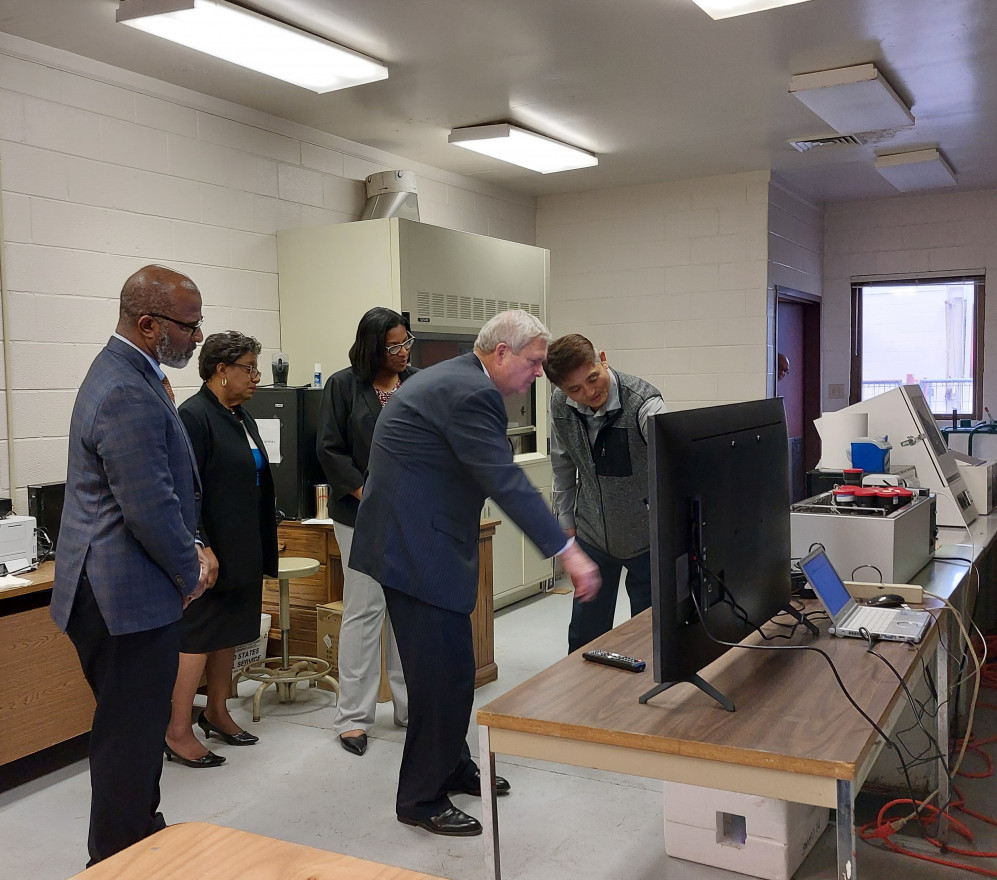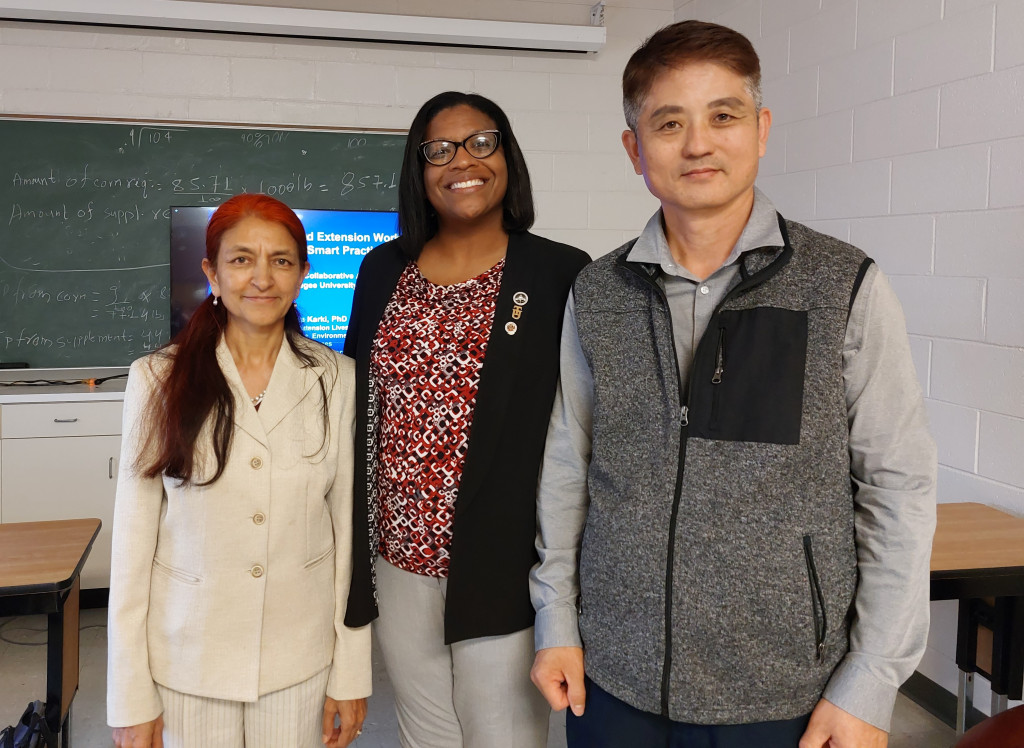
Jacquelyn Carlisle

Jacquelyn Carlisle
Tuskegee University in Tuskegee, Alabama, is one of many universities that have recently been awarded USDA funding for “Climate-Smart Commodities,” a funding pool for agricultural, ranching, and forest landowners to support expanding a national climate-smart commodities market.
Two major projects “… will improve and change the agricultural industry and will show how to better sustain materials” said Jacqueline Carlisle, Technical Writer, College of Agriculture, Environmental and Nutritional Sciences of Tuskegee University.
Uma Karki, Ph.D., a professor of Animal Sciences at Tuskegee University is heavily present in these two projects. Her academic interests include “promot(ing) the sustainable livestock production system, especially focusing [on] small-scale, limited resource producers” among other environmental specialties like goat grazing and management.

The first project entails increasing the number of farmers and knowledge of forestry among them and landowners, said Karki, who also listed three additional institutions who will participate. These schools are Alabama A&M University, Virginia State University, University of Maryland Eastern Shore, and Tuskegee University.
The project will offer its members courses in Climate-Smart and environmentally sustainable principles to benefit the world we live in. The specific goals include an initiative to increase trees in open pasture areas. Karki states that for this project, trees will play the role of creating windbreakers in crop fields to act as shields from erosion. According to Karki, the presence of trees in pastures will help keep nutrients in the land, so that they are not washed out by water or more serious flooding. They also act as a buffer for toxic waste, emerging from the water out of the open fields.
Along with these benefits, this project will teach farmers how to handle their land properly. The main focus of this project is to ensure that underfunded minority-owned companies and farmers in the states of Alabama, Maryland, and Virginia receive the funding they deserve to achieve environmental success.
The second project that Tuskegee University has received funding for has numerous goals that range from “implement[ing] climate-smart production practices…” to “develop[ing] markets and promot[ing] the resulting climate-smart commodities” according to the George Washington Carver Agricultural Experimental Station (GWCAES), an organization that is documenting this project’s aspirations and its membership.
Joining Tuskegee University in this project are institutions including Mississippi State University, Alabama A&M University, Langston University, and the U.S. Department of Agriculture. Overall, the GWCAES states that the intended outcome is for an expansion in durability “…of agriculture, forest sectors, and communities”’ in the face of changing climate conditions.
This funding comes at a pivotal moment as climate change is a rising issue that many are still skeptical about, despite tangible and drastic changes in the environment around us. By 2050, researchers predict that the earth will hold about “…10 billion people,” said Karki. With this expected population increase, carbon dioxide and other pollutants will have increasingly detrimental effects on the planet. Experts also predict that livestock production will deplete, leading to a decrease in food production, among many other issues. If this problem of food production is not solved quickly, the earth will not be able to properly sustain human life.
The good news is that these initiatives also open up opportunities for students majoring in environmental studies and beyond. Carlisle stated that students “… will help with research” and that “… other students from different majors can reach out to help as well.” This is an important factor because students from all different backgrounds can express their interests in the world around them. For example, vet students may not be necessarily involved in growing plants, but the vegetation grown will be a source of food for the animals they are caring for. So, by the projects improving the durability of land on the farm, the animals will eat better which will lead to a longer and healthier life expectancy.